Heating Pad for Shoulder: The Ultimate Comfort Solution for Sore Muscles
Ever wonder why that nagging shoulder pain just won't let up, even after trying what feels like everything? The answer might be simpler and warmer than you think. Heating pads for shoulders aren't just cozy; they're a game-changer for sore muscles, offering relief where pills and potions fall short. Read this article to unravel the mystery of effective pain relief.
In this guide, we'll cover:
-
The essence of a heating pad for shoulder pain
-
The effectiveness of heat pads for shoulder discomfort
-
How a heating pad can be your ally against shoulder pain
-
The role of heating pads post-shoulder surgery
-
Tips for using a heating pad on your shoulder effectively
-
Safe duration for heating pad application
-
Optimal methods to heat a sore shoulder
-
Professional insights on heating pad recommendations
So let's get started.
What is a Heating Pad for Shoulder Pain?
When shoulder pain turns every move into a wince-worthy moment, a heating pad for your shoulder isn't just a remedy - it's a sanctuary. But, what exactly is it? Let's break it down:
-
Specially Designed: A heating pad for shoulder pain is crafted to deliver soothing warmth right where you need it. No random warm clothes here. These pads ensure even heat distribution, offering relief without the risk of burns.
-
Thermotherapy Magic: Heat therapy boosts blood flow to the sore area, ferrying oxygen and nutrients to heal damaged muscles. The warmth also relaxes muscle spasms and eases stiffness. Imagine a warm hug for your shoulder, whispering, "Everything's going to be alright."
Not All Designed Equal:
-
Electric: Adjustable heat settings for that just-right feeling.
-
Microwaveable: Quick, easy warmth.
-
Infrared: Deep muscle penetration for superior pain relief.
Whether it's a chronic ache from overuse or a sudden sharp pain, a heating pad for your shoulder could be the key to a more comfortable, pain-free existence.
Are Heat Pads Good for Shoulder Pain?
Absolutely, and here's why. Heat pads are not just good; they're a game-changer for those battling shoulder pain. Let's dive into the core benefits:
-
Enhanced Blood Flow: Heat therapy opens up blood vessels, improving circulation to the shoulder. This means more oxygen and nutrients can reach the area, speeding up the healing process.
-
Muscle Relaxation: The warmth from the pad soothes tense muscles, reducing spasms and stiffness. It's like a gentle, warm embrace for your shoulder muscles, offering them the relaxation they crave.
-
Pain Relief: By increasing blood flow and relaxing muscles, heat pads effectively reduce pain. It's a natural, non-invasive way to find relief without reaching for medication.
But don't just take our word for it. Studies and professionals alike back the zuse of heat therapy for muscle pain. It's a trusted method, recommended by doctors and therapists for its effectiveness and safety.
Remember, while heat pads offer fantastic benefits, it's important to use them correctly. Always follow the manufacturer's instructions and consult with a healthcare professional if you have any concerns. Your shoulder's well-being is our top priority.
Can a Heating Pad Help with Shoulder Pain After Surgery?
Post-surgery recovery can be a tough journey, filled with discomfort and limited mobility. But here's some good news: a heating pad can be a valuable ally during this time. Let's explore how:
-
Reducing Post-Operative Stiffness: After surgery, it's common for your shoulder to feel stiff and immobile. Applying gentle heat can help loosen up the tissues, making movement a tad easier and less painful.
-
Soothing Pain: The warmth not only comforts the affected area but also contributes to pain reduction. It's a soothing, drug-free approach to manage your discomfort.
-
Enhancing Recovery: By improving circulation, heat therapy aids in the healing process, potentially speeding up your recovery timeline.
However, a word of caution: Always consult your surgeon or physical therapist before using a heating pad post-surgery. There are specific times when heat may not be advisable, especially in the initial days following your procedure.
When given the green light, here's how to use it safely:
-
Start with Low Heat: Begin with the lowest heat setting to see how your shoulder responds.
-
Short Sessions: Keep sessions brief at first—no more than 15-20 minutes at a time.
-
Avoid Direct Contact: Use a cloth barrier between the pad and your skin to prevent burns.
Incorporating heat therapy into your post-surgery recovery can offer comfort and aid in your journey back to full mobility. Just keep in mind, that patience and proper guidance are key to a safe and effective recovery.
How to Use a Heating Pad on Your Shoulder Effectively
Using a heating pad on your shoulder can feel like a warm embrace, melting away the pain. But to get the most out of this soothing experience, you need to do it right. Here's your quick guide to effective heat therapy:
-
Choose the Right Pad: Not all heating pads are designed the same. Opt for one that contours to the shape of your shoulder for targeted relieving muscle pain.
-
Check the Temperature: Start with a lower heat setting and gradually increase it to find a comfortable level. Too hot, and you risk burns; too cool, and it might not be effective.
-
Time It Right: Keep your sessions between 15 to 20 minutes. This is the sweet spot for maximizing benefits without overdoing it.
-
Create a Barrier: Always place a cloth between the heating pad and your skin. This simple step can prevent skin irritation or burns.
-
Stay Dry: Avoid using the heating pad on moist or damp skin to reduce the risk of burns.
-
Relax and Enjoy: Try to relax your muscles during the session. Deep breathing or meditation can enhance the therapeutic effects.
How Long Can You Leave a Heating Pad on Your Shoulder?
Finding the right balance in heat therapy is crucial. Too little time, and you might not reap the full benefits. Too much, and you risk skin irritation or even burns. So, what's the golden rule? 15 to 20 minutes per session. This timeframe offers optimal relief without overexposure to heat.
But why is this specific limit? It's all about safety and effectiveness:
-
Prevents Skin Damage: Extended heat application can damage the skin, leading to burns or irritation.
-
Maximizes Benefit: Shorter, more frequent sessions are more beneficial than one long, continuous application.
Frequency Matters Too:
-
Daily Use: It's generally safe to use your shoulder and neck heating pad multiple times a day, as long as you stick to the 15-20 minute rule.
-
Listen to Your Body: If you notice any discomfort or adverse effects, it's time to take a break.
Remember:
-
Never Fall Asleep: Falling asleep with the electric heating pad on can lead to prolonged exposure and potential harm.
-
Stay Alert: Always monitor how your skin and muscles are responding to the heat.
Incorporating these guidelines ensures that you enjoy the soothing benefits of your shoulder heating pad safely. If you're ever in doubt, especially if you have pre-existing conditions or are recovering from surgery, a quick chat with your healthcare provider can provide personalized advice.
What Is the Best Way to Heat a Shoulder?
Choosing the best way to heat your shoulder involves understanding the options available and selecting what best aligns with your needs and lifestyle. Here are the top methods to consider:
Electric Heating Pads
-
Pros: Adjustable temperature settings allow for personalized comfort. They're also convenient for home use.
-
Cons: Requires access to an electrical outlet, limiting mobility during use.
Microwaveable Heat Packs
-
Pros: Portable and easy to use, these can be warmed up quickly in the microwave for immediate relief.
-
Cons: Heat may not be as evenly distributed or long-lasting as electric options.
Infrared Heating Pads
-
Pros: Penetrates deeper into muscles for more effective pain relief. Can improve circulation and aid in recovery.
-
Cons: Typically more expensive than other types of heating pads.
Hot Water Bottles
-
Pros: Simple, traditional method that provides comforting warmth.
-
Cons: Heat fades relatively quickly, and there's a risk of leaking.
Tips for Optimal Heating:
-
Start Gradually: Begin with a lower temperature to see how your shoulder responds before increasing the heat.
-
Consistency Is Key: Regular, short sessions are more beneficial than occasional, longer ones.
-
Combine Methods: For comprehensive relief, consider alternating between direct heat (like heating pads) and indirect methods (such as warm baths or showers).
By understanding the pros and cons of each heating method, you can make an informed decision on the best way to bring warmth and relief to your sore shoulder.
Do Doctors Recommend Heating Pads?
Yes, doctors often recommend heating pads as part of a comprehensive treatment plan for neck and shoulder pain relief. This recommendation comes with a few important considerations to ensure safety and effectiveness. Here's what you need to know:
When Doctors Recommend Heating Pads
-
For Muscle Relaxation: Heat and cold therapy is excellent for relaxing tight muscle aches and reducing spasms.
-
To Improve Circulation: Applying heat boosts blood flow, which can speed up the healing process.
-
For Pain Relief: The warmth from heating pads can significantly reduce chronic pain levels due to torn rotator cuff, offering a non-invasive pain management option.
Safety First
While heating pads come highly recommended, doctors also stress the importance of using them safely:
-
Avoid Prolonged Use: To prevent burns and skin irritation, never use a weighted heating pad for longer than the recommended time.
-
Not on Bare Skin: Always place a barrier, like a towel, between the pad and your skin.
-
Not While Sleeping: Falling asleep with a comfortable heating pad for neck on increases the risk of burns.
Special Considerations
-
Post-Surgery: Consult your doctor before using a heating pad after surgery, as it may not be appropriate in the early stages of healing.
-
Chronic Conditions: Those with conditions like diabetes or circulatory issues should seek medical advice, as their skin may be more susceptible to burns.
Doctor's Advice
-
Follow Instructions: Always use the heating pad as directed, adhering to both the manufacturer's guidelines and any specific advice from your healthcare provider.
-
Combine Treatments: Doctors often suggest combining moist heat therapy with other treatments, such as physical therapy or gentle exercise, for the best results.
In summary, heating pads are a doctor-recommended solution for managing shoulder and neck pain, provided they are used correctly and safely. Always consult with a healthcare professional to ensure this treatment is right for your specific situation.
Wrap It Up and Feel the Warmth
You've journeyed through the ins and outs of heating pads for shoulder and neck pain, uncovering how they can be a game-changer in your quest for relief. It's clear that with the right approach, these pads offer more than just warmth; they provide a pathway to healing and comfort.
Here are your key takeaways:
- Heat therapy boosts circulation and relaxes muscles.
- Safety and duration are crucial for effective use.
- Doctors often recommend heating pads, with precautions.
- Various heating methods cater to different needs and preferences.
Bringing Comfort Home with Homlyns
At Homlyns, we're all about enhancing your comfort and well-being. Our range of home heating solutions is designed with your relaxation in mind, ensuring you can unwind and recharge with ease. Whether it's easing into your evening or seeking a blissful night's sleep, Homlyns is here to bring the warmth and comfort you deserve, right to your doorstep.
Let's make every moment at home a soothing experience, starting with the gentle, healing embrace of our top-quality heating solutions.




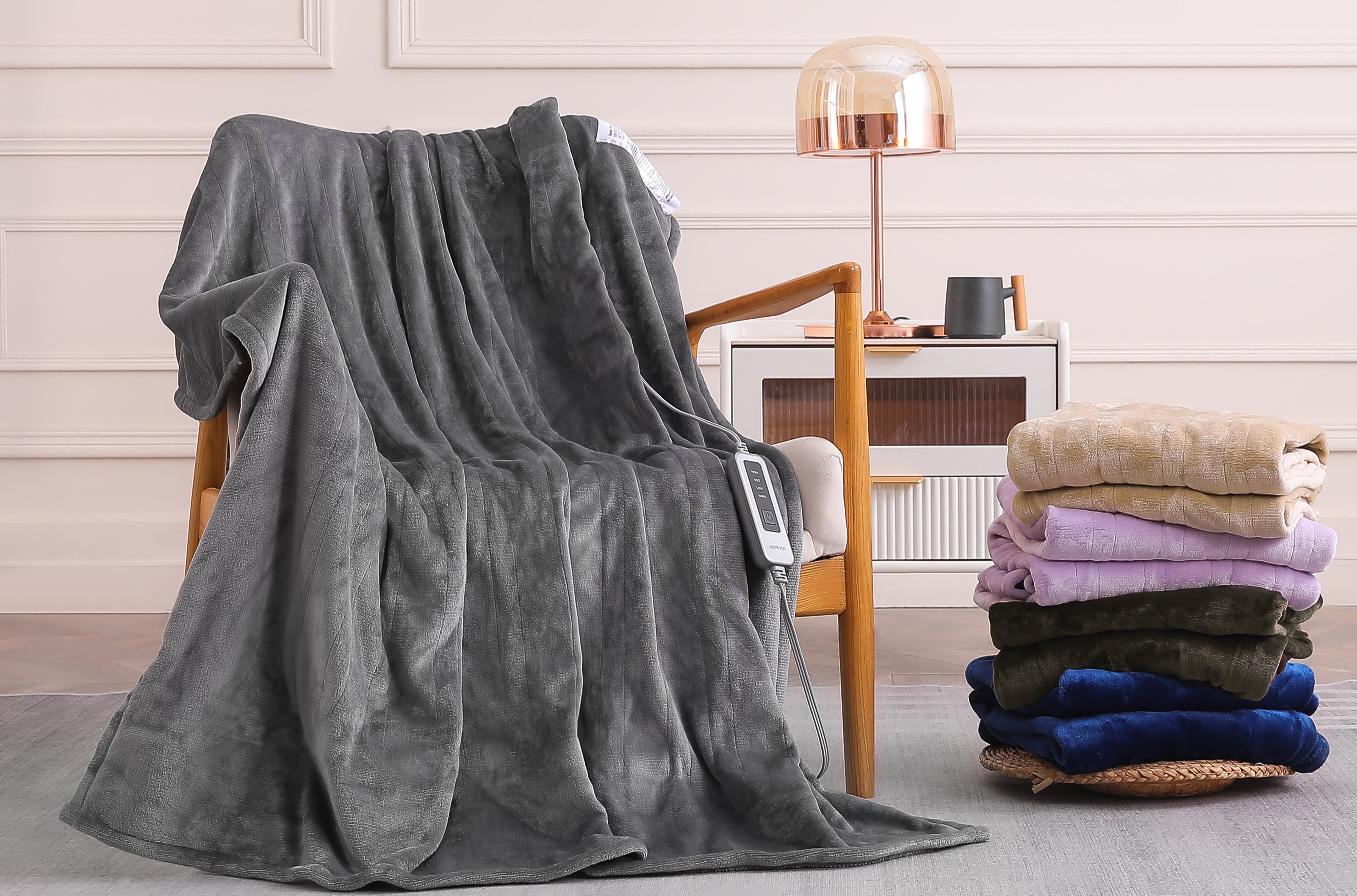
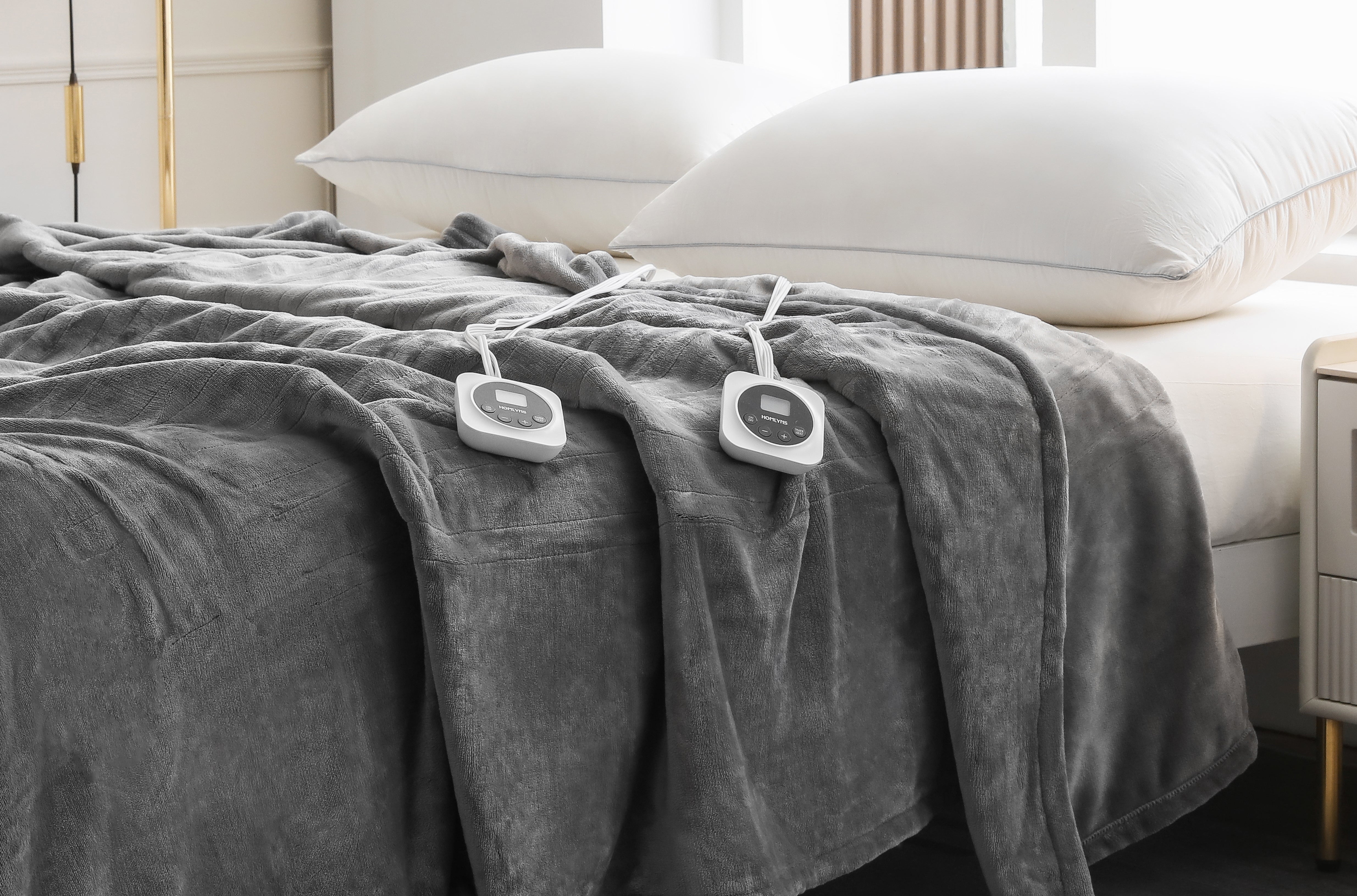
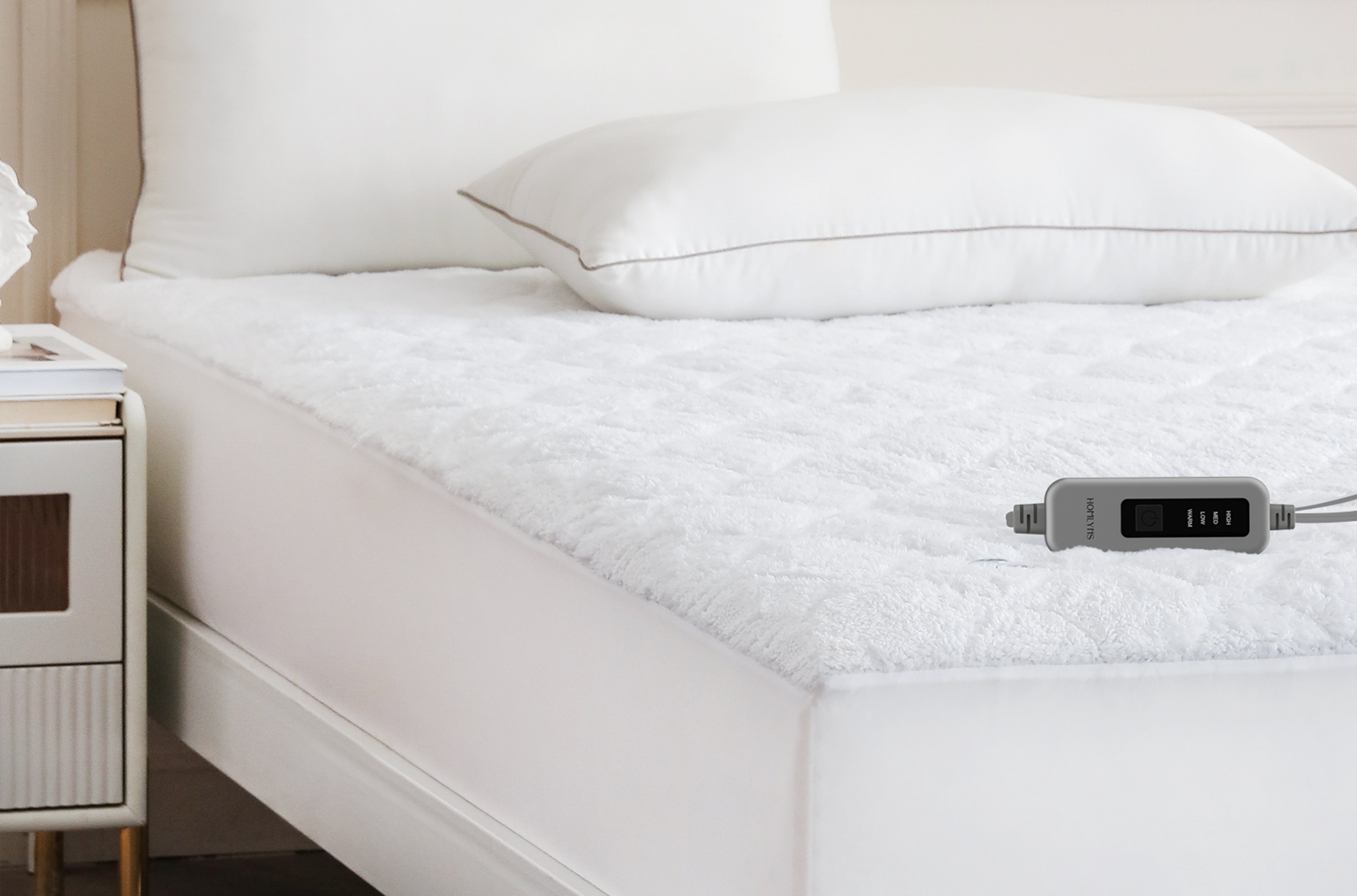

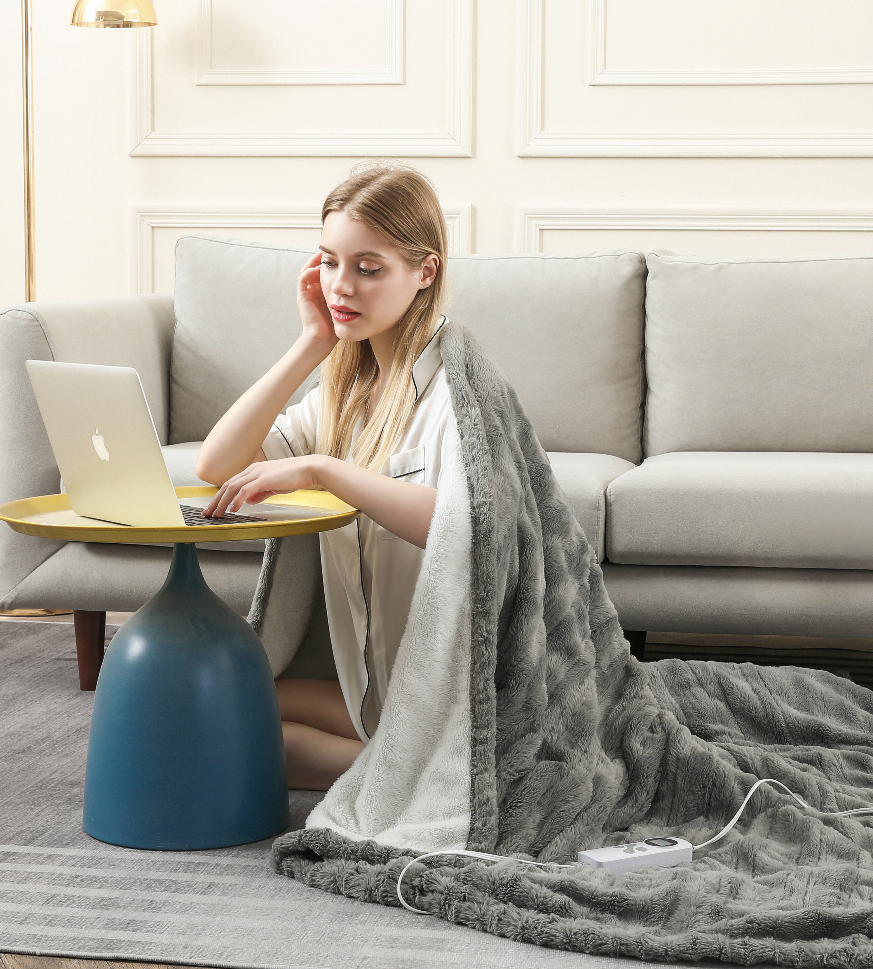
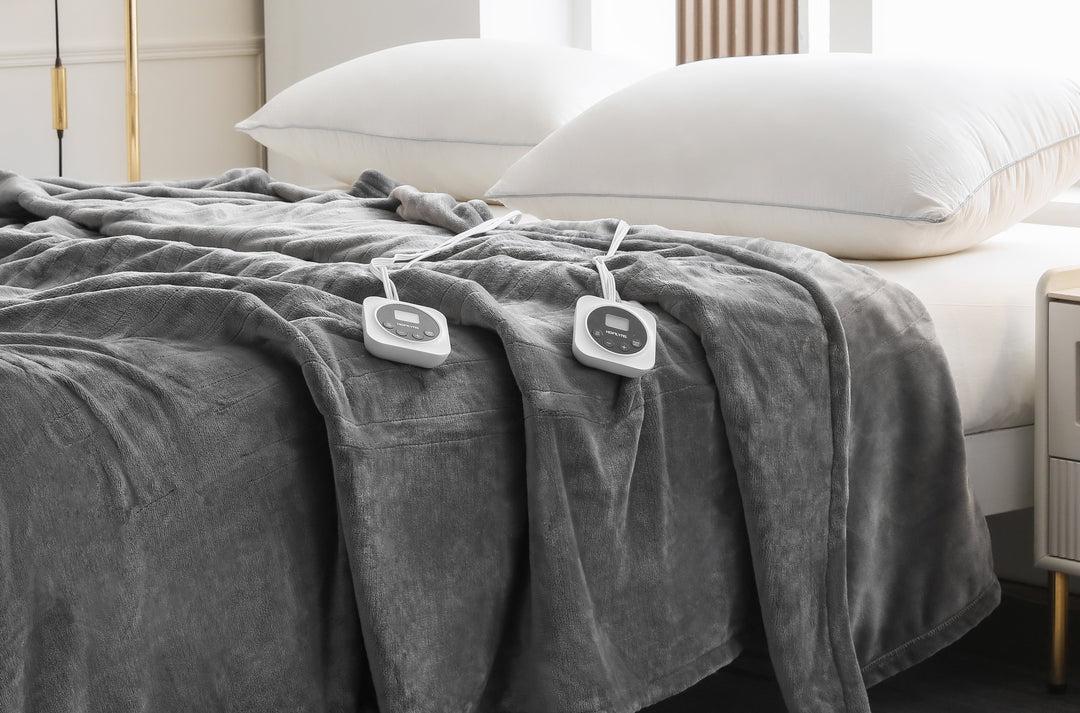
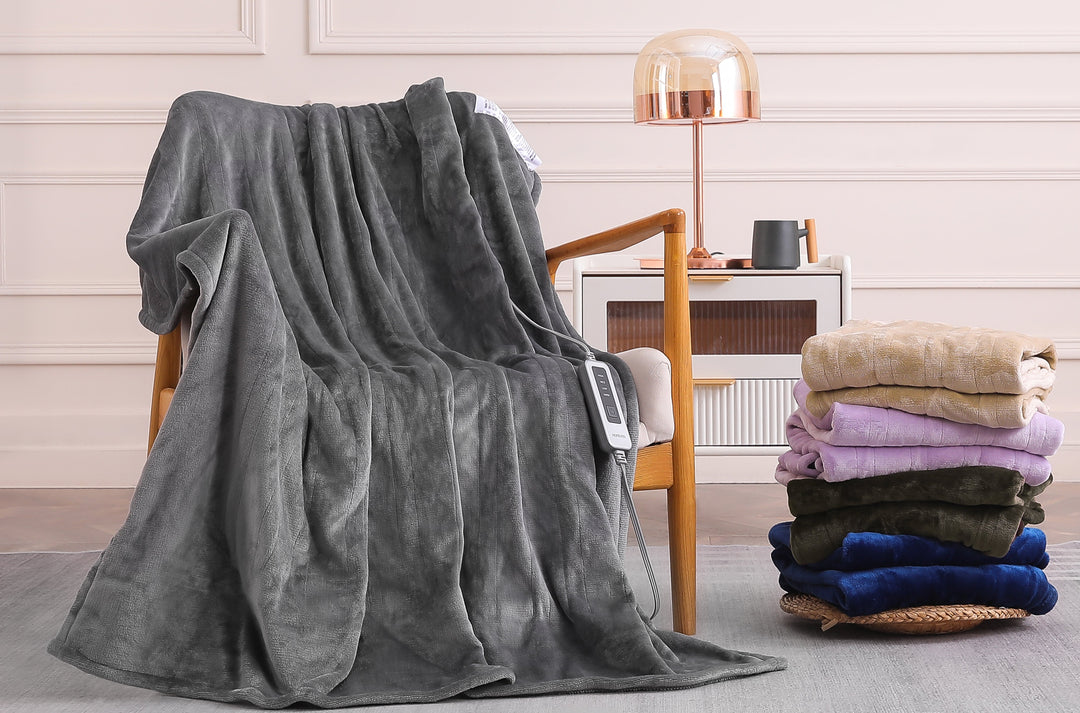
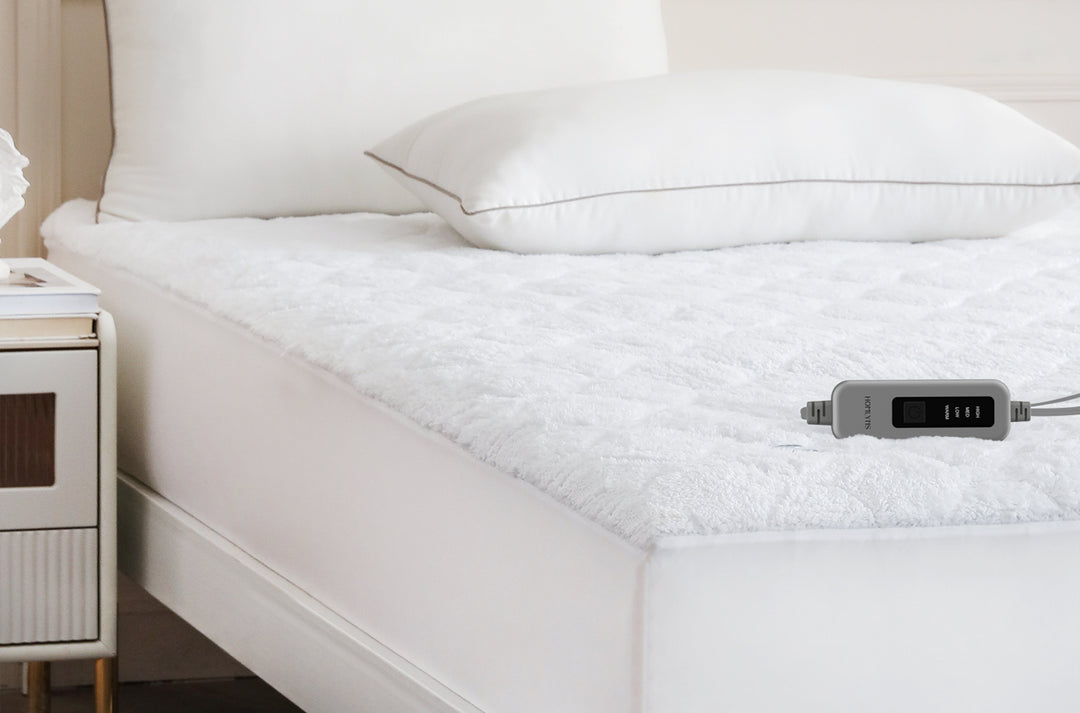

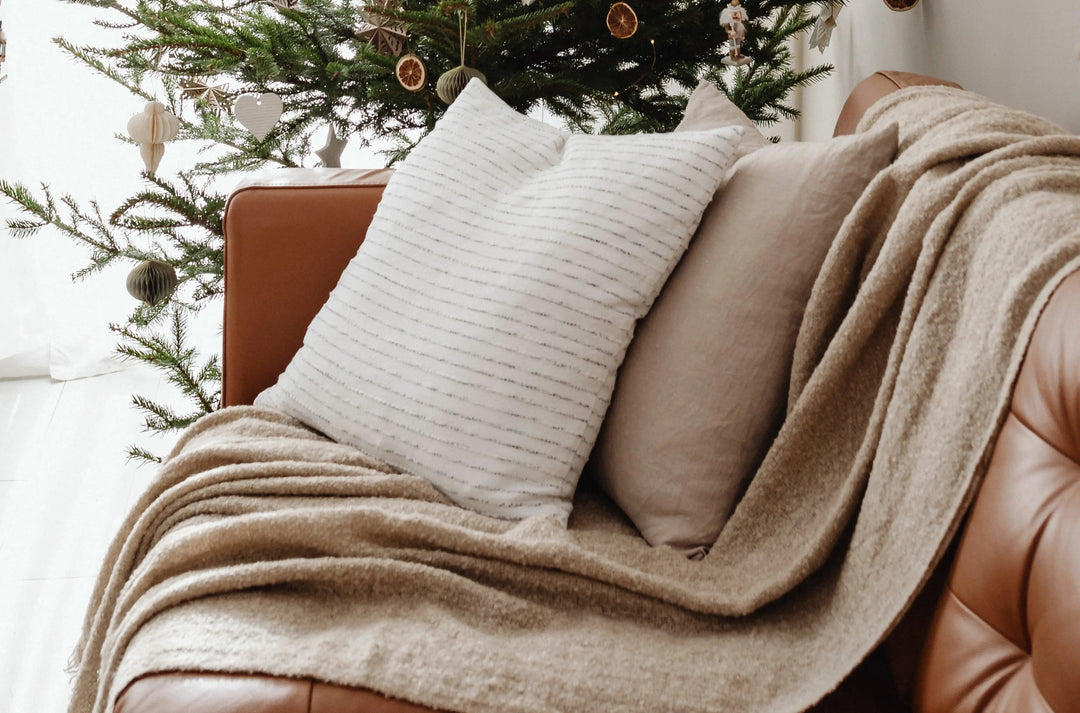
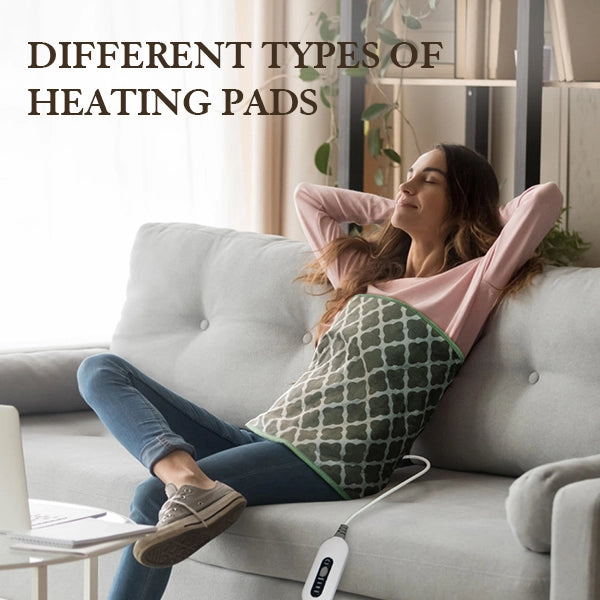

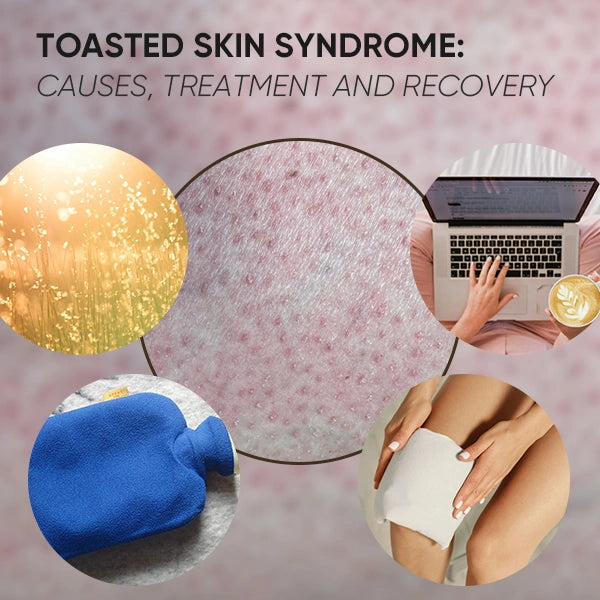
Leave a comment